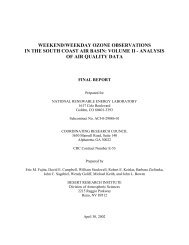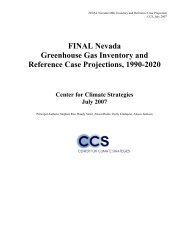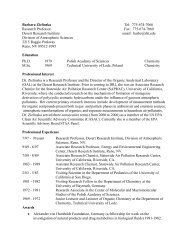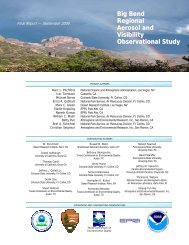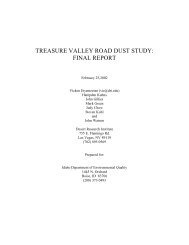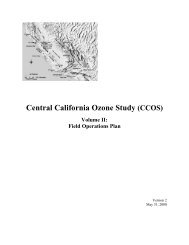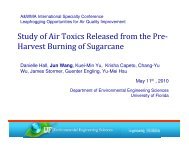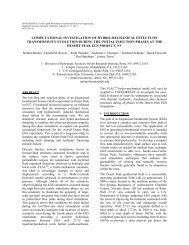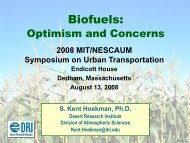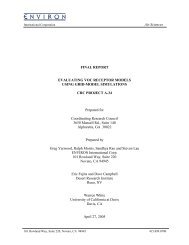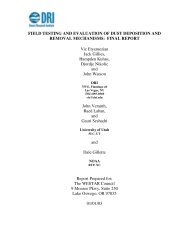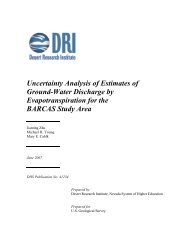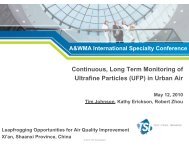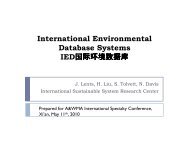Assessment of Conversion Technologies for Bioalcohol Fuel ...
Assessment of Conversion Technologies for Bioalcohol Fuel ...
Assessment of Conversion Technologies for Bioalcohol Fuel ...
You also want an ePaper? Increase the reach of your titles
YUMPU automatically turns print PDFs into web optimized ePapers that Google loves.
feedstocks. The process is said to be able to use a variety <strong>of</strong> cellulosic feedstocks,<br />
including wheat and rice straw, yard waste, commercial wood waste, agricultural<br />
residues and <strong>for</strong>estry products and residues. Lignin byproduct from the process is<br />
intended to be used as boiler fuel. The company also claims to have developed a<br />
significant improvement in the fermentation process, a specially-created organism that<br />
improves ethanol yields by 25 percent over conventional yeast fermentation.<br />
A key feature <strong>of</strong> Losonoco’s technology is said to be its precise operating conditions<br />
(temperature, pressure, acidity and residency) <strong>for</strong> each feedstock or mix <strong>of</strong> feedstocks.<br />
The process is said to be able to use a variety <strong>of</strong> cellulosic feedstocks, including wheat<br />
and rice straw, yard waste, commercial wood waste, agricultural residues and <strong>for</strong>estry<br />
products and residues. Lignin byproduct from the process is intended to be used as<br />
boiler fuel. The company also claims to have developed a significant improvement in<br />
the fermentation process, a specially-created organism that improves ethanol yields by<br />
25 percent over conventional yeast fermentation.<br />
Development Status–Pilot-scale testing <strong>of</strong> Losonoco’s process was conducted at<br />
the test facilities <strong>for</strong>merly operated by Tennessee Valley Authority, reportedly involving<br />
some 40 different biomass feedstocks. Additional advanced pilot-scale and<br />
demonstration stages <strong>of</strong> development are said to be ongoing, leading to plans <strong>for</strong> an<br />
initial small-scale commercial facility. Emissions from the process are said to have<br />
been quantified, but are proprietary. Wastewater effluents are said to be minimal.<br />
Future Development Plans–Losonoco says it has projects under discussion or in<br />
development stages at Merseyside and Teeside in the UK, in Sicily, and in the states<br />
<strong>of</strong> Florida, Louisiana, Pennsylvania, Ohio, New York, Massachusetts, Washington and<br />
Cali<strong>for</strong>nia. Permitting <strong>for</strong> one <strong>of</strong> more projects is intended to commence in 2007, with<br />
construction to begin in 2008 at the first site still to be selected. Losonoco is looking to<br />
partner in project development with <strong>for</strong>estry, pulp and paper companies and other<br />
wood waste feedstock suppliers; also in pursuing synergies between cellulosic ethanol<br />
production and conventional sugar/starch-based ethanol production, using residues<br />
such as sugarcane bagasse and corn stover as feedstocks <strong>for</strong> its process.<br />
86



